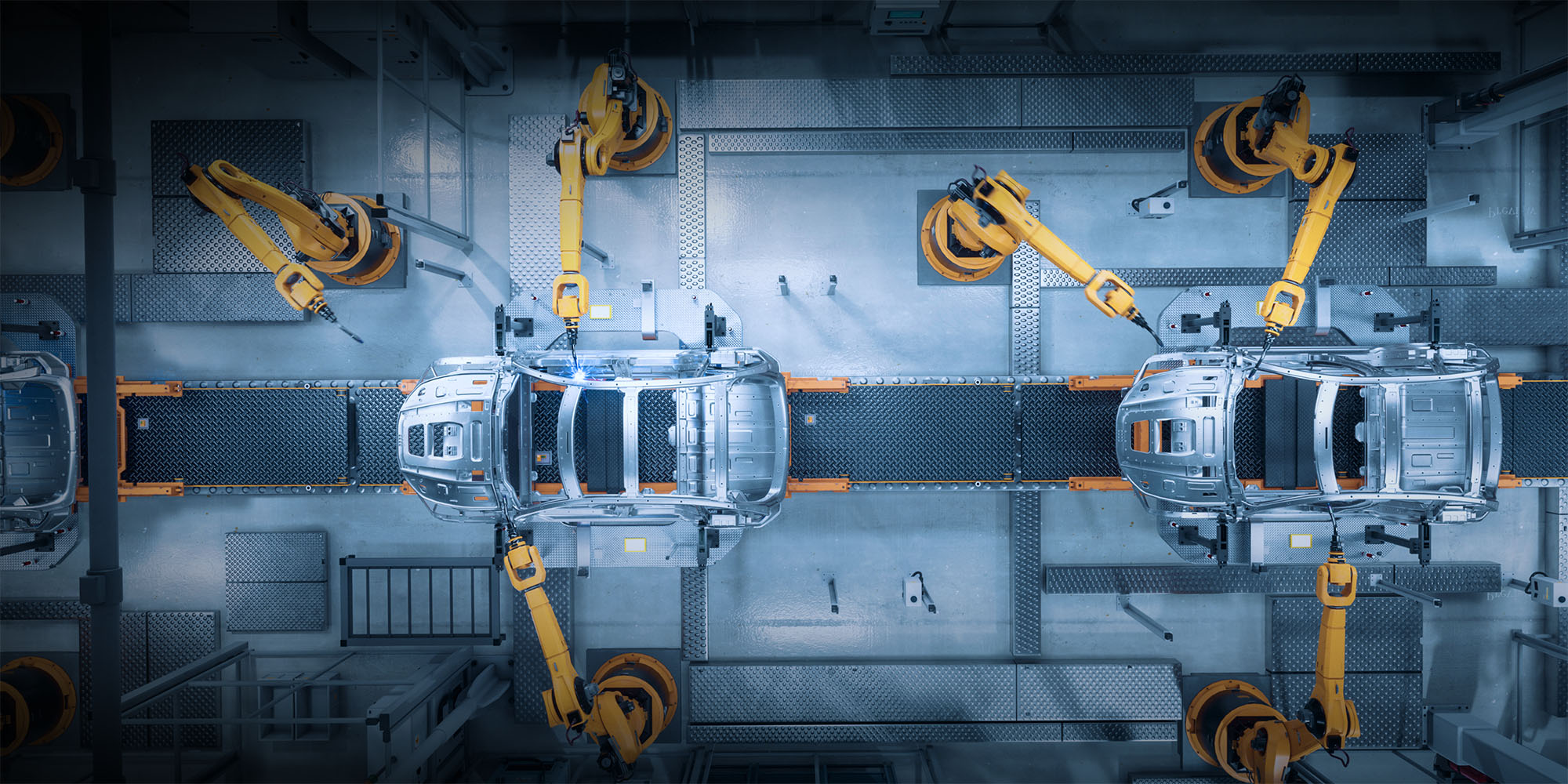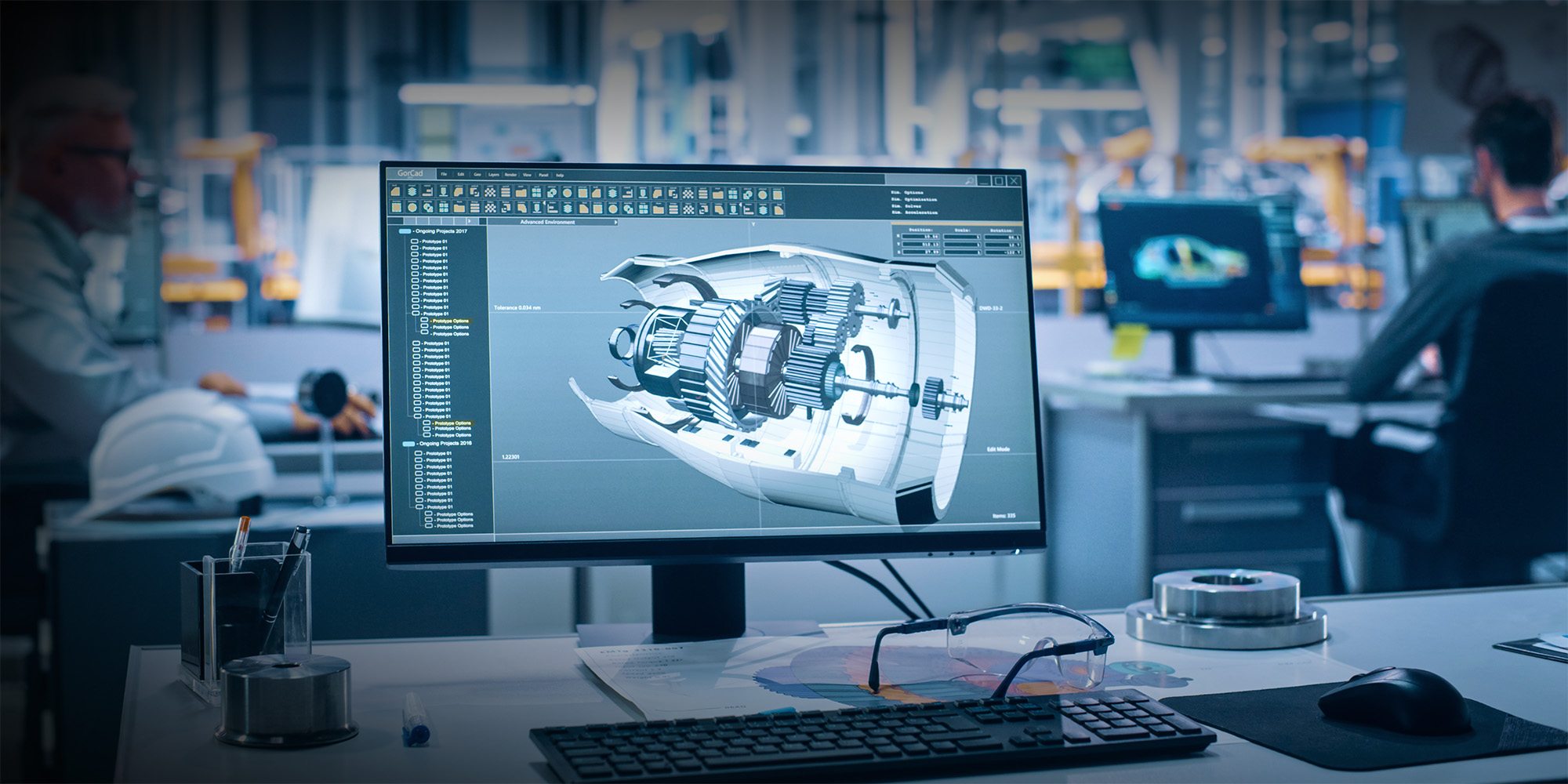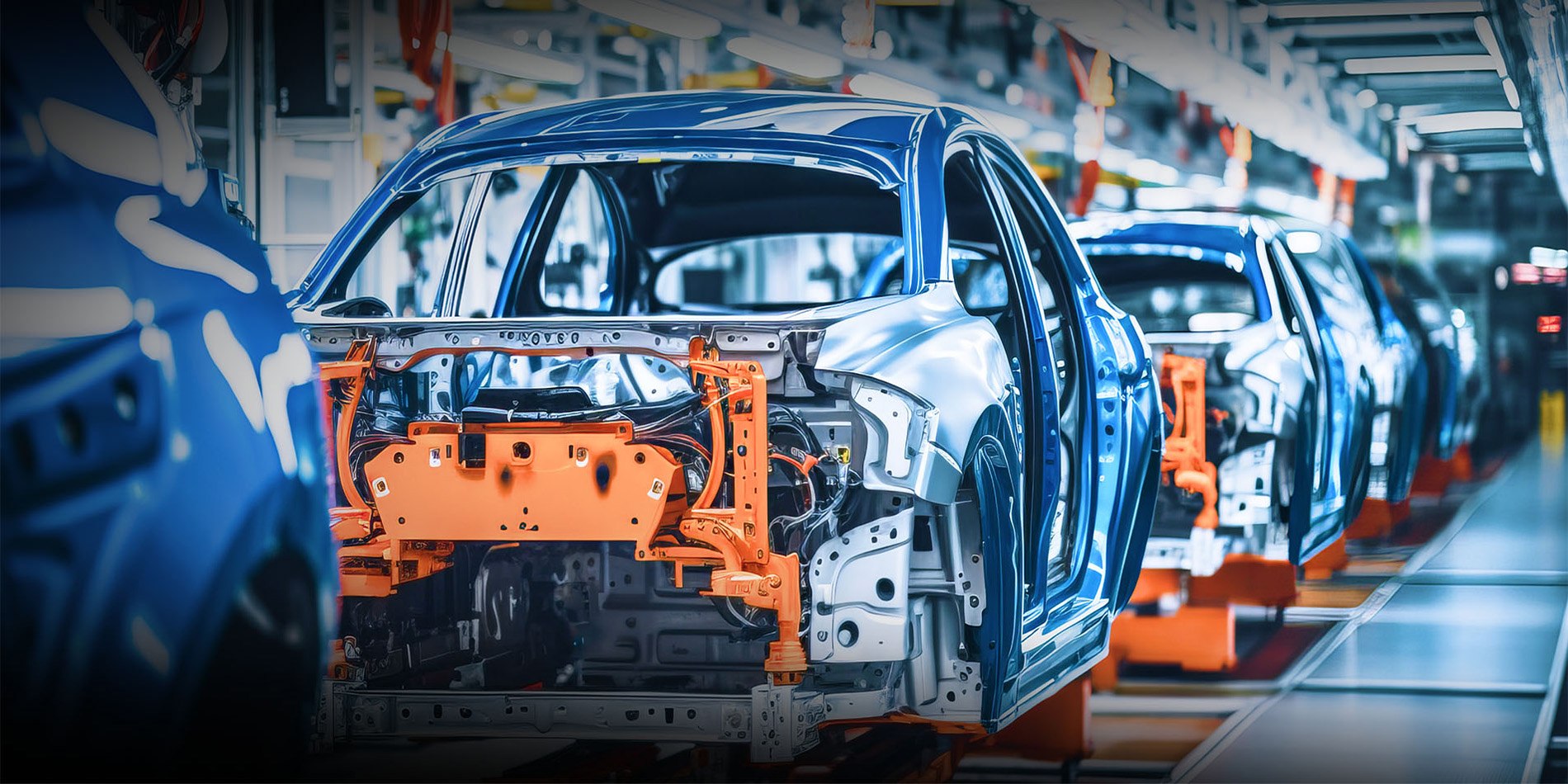
Dorian Derežić - 20/03/2024 | 15 min read
SpaceTime Predictive Maintenance Automotive
In a rapidly evolving automotive industry, proactive maintenance and efficient vehicle management have become more important than ever.

With the growth of connectivity and the influx of data from modern vehicles, predictive maintenance has emerged as a crucial strategy for automotive OEMs.
The automotive landscape has been experiencing rapid change, fuelled by advancements in technology and increasing consumer expectations for reliability and efficiency. With the rise of connected vehicles, unprecedented amounts of data are now available, providing invaluable insights into vehicle performance, maintenance needs, and potential issues.
Predictive maintenance represents a significant evolution from traditional reactive or scheduled maintenance models. Instead of waiting for parts to fail or following predetermined maintenance schedules, predictive maintenance uses real-time data to anticipate potential failures and schedule maintenance proactively. This approach dramatically reduces unexpected breakdowns and their associated costs. It also increases vehicle availability, optimizes resource allocation, and most importantly, improves customer satisfaction by reducing unscheduled downtime.
Predictive maintenance relies heavily on data. The ability to continuously collect and analyze vast amounts of vehicle data, such as engine temperatures, brake wear, tire pressure, and even driving patterns, forms the foundation of predictive maintenance systems. Timely and comprehensive data collection, coupled with advanced analytics, enables the detection of subtle patterns and anomalies that can predict future faults. Thus, the importance of predictive maintenance in today's automotive landscape cannot be overstated.
SpaceTime is a cutting-edge solution that can rapidly improve the way automotive OEMs manage predictive maintenance. SpaceTime’s primary strength lies in its capability to collect and store vast volumes of connected car data in real-time, providing a treasure trove of insights for predictive maintenance.
It collects a wide array of data, including vehicle diagnostics, sensor readings, and component performance metrics. This continuous, real-time data collection forms the backbone of an efficient predictive maintenance program, enabling the generation of comprehensive historical databases. SpaceTime's data processing capabilities go a step further by not only collecting data but also making it ready for analysis, thereby helping OEMs anticipate and prevent potential issues before they occur.
Moreover, SpaceTime's capabilities are not restricted to data collection and storage alone. It offers powerful analytic tools that enable automotive OEMs to mine collected data for valuable insights and patterns that underpin predictive maintenance algorithms. It brings scalability, speed, and flexibility to data management, making it an indispensable tool for any automotive company looking to leverage the power of predictive maintenance.
By streamlining data collection, ensuring comprehensive and real-time data storage, and providing powerful analytic capabilities, SpaceTime is indeed a game-changer in the realm of predictive maintenance in the automotive industry.
As the automotive industry embraces digital transformation, the maintenance strategies of automotive OEMs have also evolved. From reactive to proactive, the transition is reshaping the industry, with predictive maintenance taking center stage.
Traditionally, maintenance strategies in the automotive industry were reactive. Essentially, problems were dealt with as they occurred. This reactive approach can lead to increased operational costs and significant disruptions, and can negatively affect customer satisfaction due to unexpected vehicle downtime.
The automotive industry, in response, has been progressively shifting towards a more proactive maintenance approach. Predictive maintenance epitomizes this proactive shift. Through constant monitoring of vehicle health and the application of advanced data analysis techniques, potential issues can be identified before they escalate into serious problems, and maintenance can be scheduled proactively.
This shift not only leads to a decreased vehicle downtime but also helps OEMs better manage their resources. They can plan their maintenance schedules and personnel allocation more effectively, ensuring that their operations run smoothly, costs are controlled, and customer satisfaction is preserved or enhanced.
In predictive maintenance, data is king. With the advent of connected cars, the amount of data that vehicles generate has grown exponentially. This data, which includes information about various vehicle systems and components, sensor readings, vehicle diagnostics, and more, is continuously collected and stored for analysis.
Data is what powers predictive maintenance. By employing advanced analytics and machine learning algorithms on collected data, predictive maintenance solutions can identify patterns and anomalies that could indicate potential component failures or other issues. This allows OEMs to schedule maintenance proactively and avoid unforeseen vehicle downtime.
Furthermore, as more data is collected and analyzed, the predictive capabilities of these systems improve, making the maintenance process more accurate and efficient over time.
Predictive maintenance has a profound impact on vehicle uptime, one of the most critical metrics for fleet managers and vehicle manufacturers.
Unplanned vehicle downtime can be a significant pain point, leading to disrupted operations, lost productivity, and increased costs. With predictive maintenance, potential issues can be identified well in advance, allowing for maintenance to be scheduled during non-operational hours and reducing the risk of unexpected failures that result in costly downtime.
Moreover, by preventing issues from escalating into significant problems, predictive maintenance also enhances the overall health and longevity of the vehicle, further maximizing uptime.
Predictive maintenance plays a critical role in cost reduction and efficiency enhancement. Emergency repairs and major overhauls resulting from unexpected breakdowns are significantly more costly than regular, planned maintenance. Predictive maintenance enables OEMs to identify and address potential issues before they evolve into costly repairs.
Moreover, planned maintenance is more efficient. OEMs can schedule their maintenance activities during non-operational hours, minimizing disruption to their operations. They can also manage their resources better, assigning the right personnel and parts at the right time, avoiding waste, and enhancing operational efficiency.
Predictive maintenance powered by data analytics is heralding a transformation in the automotive industry. By enabling a proactive, data-driven approach to maintenance, it is helping OEMs optimize their operations, improve vehicle reliability, reduce costs, and enhance customer satisfaction.
Furthermore, as the data generated by vehicles continues to increase in volume and variety, the insights derived from this data will only become more accurate and valuable. This will drive continuous improvement in predictive maintenance strategies and technologies, reinforcing their role as a cornerstone of the automotive industry's digital transformation.
And SpaceTime, with its advanced data collection, storage and analytics capabilities, is poised to be at the forefront of this transformation, offering automotive OEMs a robust and efficient solution for implementing predictive maintenance.

When we talk about predictive maintenance in the automotive industry, we are essentially talking about a data game, and more specifically, a game of how effectively and efficiently you can collect, store, and analyze that data. In this domain, Mireo SpaceTime shines as it is built to handle large volumes of diverse data types, collected in real-time, and stored in a manner that allows for easy retrieval and analysis.
SpaceTime employs a state-of-the-art data management system specifically designed to handle large-scale, high-velocity data. It utilizes a highly distributed architecture, with data spread across multiple nodes. This approach allows SpaceTime to manage data loads evenly and ensure smooth operation even under massive data influx. When data is generated by connected cars, SpaceTime instantly processes and stores this data, ensuring no delay between data creation and data availability. The data ingestion process is streamlined and involves no latency.
Furthermore, it employs efficient indexing strategies and data compression techniques to optimize storage and retrieval processes. This ensures that even with vast volumes of data, relevant pieces of information can be quickly retrieved and used for analysis. The real-time data processing and storage capabilities of SpaceTime enable OEMs to gain immediate insights into the health and performance of their vehicles, driving predictive maintenance initiatives forward.
SpaceTime harnesses a wide variety of data, including vehicle diagnostics and sensor readings, to enable effective predictive maintenance. This data is valuable because it provides a real-time snapshot of a vehicle's health. Diagnostic codes, for instance, can indicate specific systems or parts experiencing issues. Sensor readings, on the other hand, provide data on parameters like temperature, pressure, and RPM, which can be indicative of the vehicle's operational state.
But SpaceTime goes beyond mere data collection and delves into data interpretation. Using advanced analytics and machine learning algorithms, it identifies patterns and correlations in the data that might be indicative of potential component failure or system malfunction. This early detection capability allows issues to be addressed before they escalate, preventing vehicle downtime and reducing maintenance costs.
With SpaceTime, the process of building a comprehensive historical database is automated and seamless. As it continuously collects real-time data from vehicles, each data point is appended to the vehicle's historical record in the database. Over time, this creates a detailed timeline of the vehicle's performance and operational characteristics.
This historical data serves as a reference point for identifying deviations in vehicle behavior and predicting potential issues. Anomalies are detected by comparing current data against historical patterns. For example, if the braking system's pressure readings suddenly deviate significantly from the historical norm, it may signal a potential issue, prompting further investigation and proactive maintenance.
Moreover, this historical database is enriched with contextual metadata, such as environmental conditions (like weather or road conditions) and driving patterns, providing a holistic view of the factors impacting vehicle performance.
Real-time data collection in SpaceTime translates into real-time insights, a critical factor for predictive maintenance. As SpaceTime processes data in real-time, it's able to apply its analytical capabilities to generate immediate insights. Advanced analytics, machine learning algorithms, and AI are applied to the data as soon as it's ingested, identifying patterns, anomalies, and trends.
In the context of predictive maintenance, this could mean detecting a subtle but consistent increase in engine temperature, indicating a potential cooling system issue. With this real-time insight, preventive action can be taken before the issue leads to a breakdown or more severe damage. The immediacy of SpaceTime's data collection and analysis capabilities allows for a more dynamic and proactive approach to vehicle maintenance.
Mireo SpaceTime is designed to manage diverse data types efficiently. From numeric values from sensors to categorical data from diagnostic codes, SpaceTime's data management system is equipped to handle them all. It's not only about data collection but also about data understanding. The system is designed to comprehend the data's context, providing the information needed to interpret and act upon it appropriately.
For example, understanding the significance of an engine temperature reading requires knowledge of the normal operating range. Without this context, a high reading could be erroneously flagged as an issue, or worse, a reading within the critical range could be overlooked. SpaceTime has an understanding of such context, helping it accurately interpret diverse data types, which in turn enhances its predictive maintenance capabilities. This is achieved by leveraging the system's comprehensive historical database, AI capabilities, and extensive automotive domain knowledge to analyze and interpret data effectively.

Mireo SpaceTime’s approach to maintenance not only revolutionizes the operational efficiency of automotive OEMs, but also manifests a substantial impact on customer satisfaction, trust, and overall business performance.
SpaceTime, with its state-of-the-art data collection capabilities, forms the backbone of predictive maintenance in modern automotive operations. It continuously monitors vital parameters from vehicle diagnostics, sensor readings, and other relevant vehicle data, creating a rich stream of real-time information. The detailed insights generated by analyzing this data allow for the identification of patterns that precede component failure or system malfunctions. By detecting and addressing these issues early, OEMs can greatly enhance the reliability of their vehicles.
Predictive maintenance also directly affects the bottom line by reducing maintenance costs. Traditional reactive maintenance approaches can lead to severe, costly repairs due to the sudden failure of components. With predictive maintenance powered by Mireo SpaceTime, such unexpected costs can be avoided. The ability to predict a potential failure means that maintenance can be planned and scheduled efficiently, saving resources and reducing overall costs.
Moreover, by preventing over-maintenance (unnecessary servicing based on arbitrary time intervals rather than the actual condition of the vehicle) OEMs can save substantially on parts and labor.
SpaceTime's predictive maintenance capability is critical in maximizing vehicle uptime. Continuous monitoring of vehicle health and performance enables potential issues to be identified and resolved before they lead to breakdowns. This is crucial for commercial fleet operators, for whom vehicle uptime directly correlates with revenue and profitability.
For instance, consider a logistics company that relies on its fleet of trucks for delivering goods. Unplanned downtime due to unexpected vehicle breakdown can disrupt delivery schedules, harm customer relationships, and even incur penalties in certain contracts. By leveraging SpaceTime's predictive maintenance capabilities, potential issues can be identified and rectified during planned servicing, thereby maximizing uptime and maintaining service reliability.
One of the key benefits of predictive maintenance is the significant improvement in customer satisfaction. With SpaceTime, maintenance schedules become proactive rather than reactive. Instead of customers discovering a problem while they're on the road, potential issues are identified and communicated to them in advance, based on real-time and historical data analysis.
The impact on the customer experience is profound. Customers no longer have to deal with the inconvenience and stress of unexpected breakdowns or unscheduled repairs. Their vehicles are always in optimal condition, resulting in smoother, more reliable rides. This level of proactive care fosters a higher level of customer satisfaction and loyalty towards the brand.
Predictive maintenance with SpaceTime not only delivers operational efficiencies but also drives significant cost savings. It reduces the frequency of unscheduled repairs, eliminates unnecessary preventive maintenance, optimizes the use of parts and labor, and extends the lifespan of the vehicles—all contributing to lower overall maintenance costs.
Furthermore, predictive maintenance reduces the need for extensive inventory of spare parts. By knowing in advance which components are likely to require replacement and when, OEMs and service centers can manage their inventory more effectively, leading to further cost savings.
These tangible benefits build a strong business case for adopting SpaceTime and its predictive maintenance capabilities, providing automotive OEMs with a significant competitive edge.
In the automotive industry, customer trust is paramount. Predictive maintenance powered by SpaceTime allows OEMs to deliver consistently high-performing vehicles, thereby strengthening customer trust. When vehicles perform optimally with fewer breakdowns or unexpected repairs, customers' confidence in the brand increases.
Furthermore, the transparency afforded by predictive maintenance—providing customers with insights into their vehicle's health and maintenance needs—also builds trust. It assures customers that their vehicle is being monitored and cared for proactively, making them feel valued and respected. This deepened trust can lead to increased customer retention, and ultimately, business growth.

In the heart of predictive maintenance lies the ability to capture, store, and analyze vast amounts of data swiftly and securely. SpaceTime offers a robust platform that leverages cutting-edge technologies to deliver on these fronts. So let's take a deeper dive into SpaceTime's data collection and storage capabilities, explore how it ensures scalability and security, and see how it integrates seamlessly with existing systems.
SpaceTime harnesses the power of innovative distributed computing technologies and advanced algorithms for seamless real-time data collection. Its data ingestion engine is designed to support high-speed, low-latency data streams, allowing SpaceTime to handle vast amounts of data from millions of connected vehicles concurrently. This level of scalability is achieved by dividing data into smaller chunks and processing them simultaneously, ensuring swift and efficient data handling.
Additionally, SpaceTime employs smart algorithms that perform on-the-fly data filtration and prioritization. These algorithms leverage artificial intelligence (AI) and machine learning (ML) techniques to identify and focus on high-priority data, filter out noise, and ensure efficient use of computing resources.
SpaceTime uses a distributed data storage architecture to achieve immense scalability. This system allows easy integration of additional storage resources as the volume of data escalates, without hampering system performance. Such an architecture is not only scalable but also fault-tolerant, providing redundancy and ensuring data availability even in the event of system failures.
From a security perspective, SpaceTime employs robust measures such as end-to-end encryption and stringent access controls.
SpaceTime's design ensures seamless integration into existing IT ecosystems. It provides interfaces which enable direct communication with existing databases and systems within an organization, thus avoiding disruptive and expensive infrastructure overhauls. SpaceTime can 'plug and play' with existing IT resources, facilitating a smoother digital transition.
SpaceTime addresses numerous technical challenges associated with real-time data collection and storage. The sheer volume of data from connected cars, the velocity at which it is generated, and the variety of formats present significant hurdles. Furthermore, real-time analysis and data security add layers of complexity.
SpaceTime's robust data ingestion engine handles the velocity and volume of data effectively. Its capability to process structured and unstructured data, combined with real-time processing features, address the data variety and velocity issues.
SpaceTime's scalable architecture and regular feature enhancements make it a future-proof solution for the dynamic automotive industry. Its scalability ensures it can comfortably handle growing data volumes, while continuous updates and enhancements keep it abreast of the latest developments in data processing and analytics.
Additionally, SpaceTime's commitment to interoperability and integration means it can seamlessly adapt to new IT architectures and technologies as they emerge. It allows automotive OEMs to have a data strategy that evolves with the industry, ensuring that their investment in SpaceTime today is an investment in a tool that can support their future data needs.
As we step into an era where predictive maintenance is becoming a necessity rather than a luxury, the role of advanced data management platforms like SpaceTime is becoming increasingly significant. The continuous evolution of data-driven strategies is set to shape the future of predictive maintenance, with SpaceTime positioned as a key enabler.
SpaceTime is not just a platform for today but also for tomorrow. Its scalable architecture, extensive data management capabilities, and real-time data processing power make it a pivotal player in the future of predictive maintenance. As automotive OEMs strive to maximize vehicle uptime, reduce costs, and enhance customer satisfaction, SpaceTime will be instrumental in helping them achieve these goals.
The ongoing advancement in machine learning and AI, incorporated into SpaceTime's predictive algorithms, allows the system to continue learning and improving its predictive accuracy. This will enable SpaceTime to provide even more precise maintenance schedules and prediction, thereby reducing false alarms and unnecessary inspections.
Moreover, with the increasing trend towards autonomous vehicles, the role of predictive maintenance and hence SpaceTime is expected to grow even more critical. As these vehicles will heavily rely on real-time data and predictive analysis for safe and efficient operation, SpaceTime's ability to efficiently manage and analyze large volumes of diverse data in real-time positions it as a crucial tool in this upcoming automotive revolution.
The strategies for predictive maintenance are continuously evolving, with data-driven insights becoming increasingly crucial. The ability to collect and analyze a vast array of data in real-time has shifted the maintenance approach from 'fix when broken' to 'predict and prevent'. This paradigm shift is set to continue, with predictive maintenance strategies becoming more sophisticated, efficient, and accurate.
In this context, Mireo SpaceTime, with its robust data collection and storage capabilities, is perfectly positioned to support this ongoing evolution. By continually adapting to emerging technologies and integrating advanced analytics techniques, SpaceTime ensures that the predictive maintenance strategies of automotive OEMs remain at the forefront of the industry's advancements.
The future of predictive maintenance lies in harnessing diverse data types from numerous sources in real-time, coupled with sophisticated analysis techniques to predict potential issues and suggest maintenance actions. By providing a comprehensive platform that encompasses all these capabilities, Mireo SpaceTime is not only contributing to the evolution of predictive maintenance strategies but also shaping their future trajectory.
In conclusion, the future of predictive maintenance with Mireo SpaceTime looks bright, with the platform continuing to enhance its capabilities and adapt to the ever-changing automotive landscape. The evolving data-driven predictive maintenance strategies will continue to be supported by SpaceTime's advanced data management capabilities, making it an indispensable tool in the future of automotive industry.